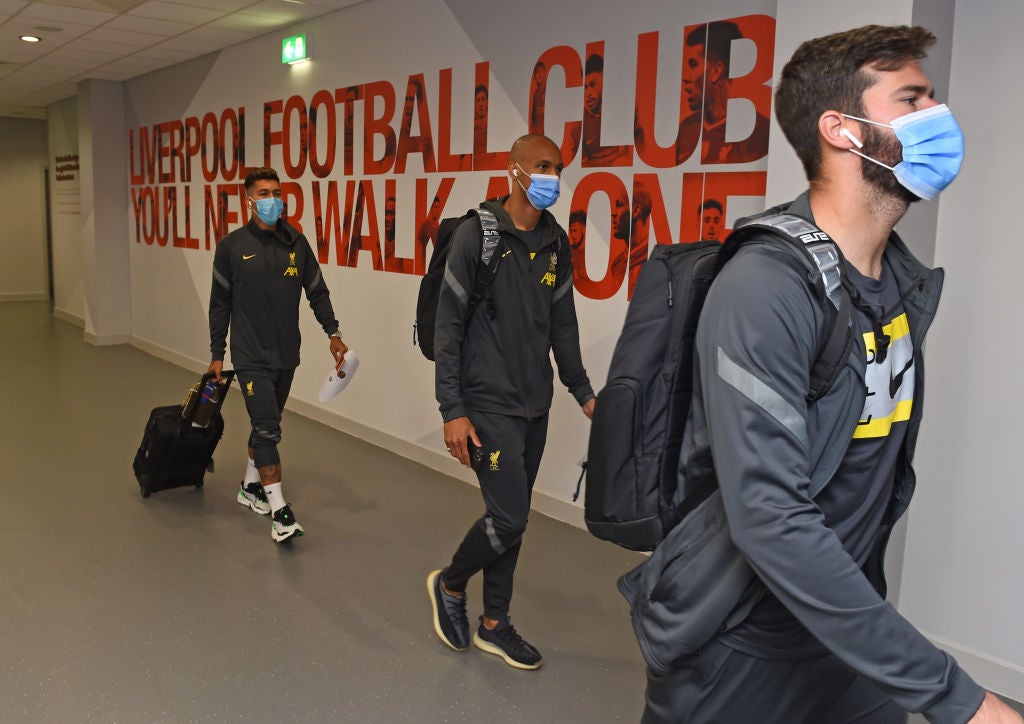Premier League discusses quarantine exemptions for international players travelling to red-list countries
Senior club management were updated on the dialogue between the Premier League, the Government and FIFA on Wednesday.

Your support helps us to tell the story
From reproductive rights to climate change to Big Tech, The Independent is on the ground when the story is developing. Whether it's investigating the financials of Elon Musk's pro-Trump PAC or producing our latest documentary, 'The A Word', which shines a light on the American women fighting for reproductive rights, we know how important it is to parse out the facts from the messaging.
At such a critical moment in US history, we need reporters on the ground. Your donation allows us to keep sending journalists to speak to both sides of the story.
The Independent is trusted by Americans across the entire political spectrum. And unlike many other quality news outlets, we choose not to lock Americans out of our reporting and analysis with paywalls. We believe quality journalism should be available to everyone, paid for by those who can afford it.
Your support makes all the difference.Quarantine exemptions for Premier League players travelling to red-list countries for international duty are being discussed in a bid to avoid another player release row ahead of the October break.
The PA news agency understands senior management at top-flight clubs were updated on the progress of talks between the league, the Government and FIFA at a Premier League shareholders’ meeting in London on Wednesday.
There remains a possibility of an agreement being reached to avoid players having to quarantine for 10 days on their return.
That could involve strict conditions on players entering Covid-secure bubbles once they join up with their national team, and then returning to a similar set-up at their clubs.
The Premier League clubs released a joint statement prior to the September international break to say that players would not be released for international duty in red-list countries.
It appeared a number of the league’s South and Central American stars would be barred from playing for their clubs in the five days after the international window after the national associations of Brazil, Chile, Mexico and Paraguay initially asked FIFA to impose a restriction.
However, this was waived late on September 10, as FIFA acknowledged there had been “constructive dialogue” with the UK Government over the issue.
Clubs decided to postpone discussions around a new Premier League owners’ charter until a later date, with many of the club representatives having to attend their sides’ Carabao Cup fixtures.
A draft of the charter – intended to prevent a repeat of any future Super League-style breakaway – had been sent to clubs for consideration ahead of Wednesday’s meeting.
Clubs agreed to continue with Covid-19 certification spot-checks, so that they remain ready to implement the ‘vaccine passport’ system should the Government opt to mandate it in the event of the pandemic worsening.
Club bosses were updated on broadcast sales plans for the Americas and Australia, and also plans to sell rights on ships and aeroplanes.
They also discussed the domestic calendar for 2022-23, which has the Qatar World Cup in the middle of it.
A draft schedule includes the season starting on August 6 and breaking on November 13, with the tournament starting on November 21.
The top flight would resume on Boxing Day and finish on May 28, 2023, with the FA Cup final scheduled for June 3.
Aston Villa chief executive Christian Purslow told reporters at the meeting that the winter World Cup was a “crazy” idea.
“I always have concerns about player welfare but I have more concerns for our fans missing Premier League football in the winter for five weeks, which is our great national tradition and our great national heritage,” he said.
The Premier League confirmed after the meeting that Mai Fyfield and Dharmash Mistry will join its board as independent non-executive directors.
They will join in October on three-year terms, and the league will now begin the search for one further independent non-executive director to “complete the composition of a new and diverse board”.
The board currently consists of chair Gary Hoffman, chief executive Richard Masters and independent non-executive director Kevin Beeston, who it was confirmed will also stay for a further term.